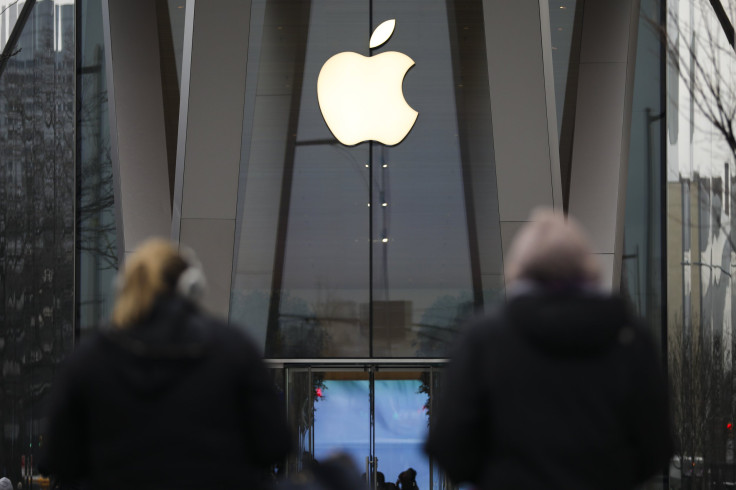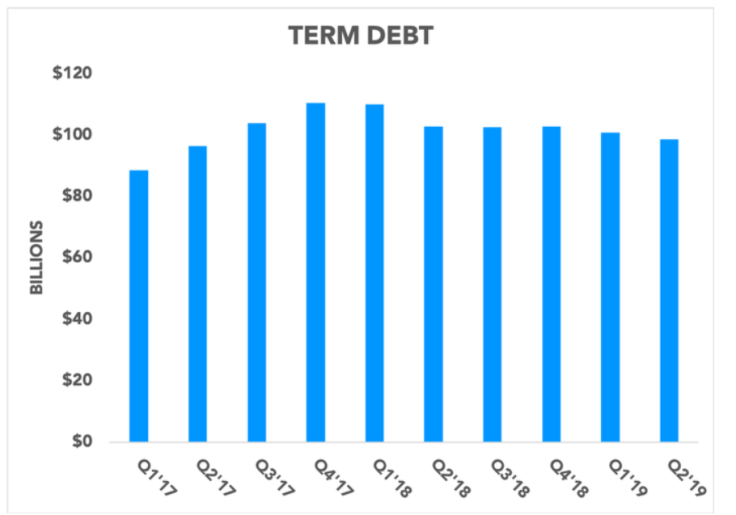Apple To Issue Bonds After Taking A Break From Borrowing

Ever since tax reform was passed in the U.S. in the final weeks of 2017, Apple (NASDAQ:AAPL) hasn't needed to issue new debt. After all, a crucial piece of the tax legislation imposed a mandatory deemed repatriation tax on foreign reserves, which freed multinational corporations to bring that cash home because taxes had now been paid.
Before then, Apple had preferred to keep the bulk of its cash hoard abroad, taking on increasing amounts of debt to fund its massive capital return program that has now seen the company give back nearly $400 billion to shareholders between share repurchases and dividends. Since then, Apple has been slowly paying down its debt, letting bonds mature without issuing new ones.

For the first time since the passage of tax reform, Apple has signaled that it will be issuing fresh bonds.
Returning to the bond market
The Cupertino tech giant has filed a preliminary prospectus with the SEC, detailing five tranches of notes that it plans to offer in the near future. Certain key details, such as the principal amount that Apple is raising, have not yet been finalized.
It's also unclear if the tranches will carry fixed or floating interest rates. Apple often offers a combination of fixed and floating rate instruments, and sometimes converts fixed notes to floaters (and vice versa) using interest rate swaps in order to better manage interest rate risk depending on market conditions. The notes will mature in 2022, 2024, 2026, 2029, and 2049.
In terms of how the company will deploy the proceeds, the Mac maker says it plans to use the money for "general corporate purposes, including repurchases of our common stock and payment of dividends under our program to return capital to shareholders, funding for working capital, capital expenditures, acquisitions and repayment of debt."
Apple boosted its share repurchase authorization by $75 billion in April, which is the usual time each year the company provides annual updates to its capital return program.
Rates coming down
The news comes a little over a month after the Federal Reserve cut interest rates for the first time since the Great Recession, which monetary policymakers said at the time was done in part to help mitigate risks associated with President Trump's trade war with China. Borrowing costs are already at historical lows but are coming down further and Apple wants to take advantage of low interest rates.
Over the past year and a half, Apple has been pursuing a "net cash neutral" goal that will bring its cash position roughly in line with total debt. "We retired $3 billion of term debt and reduced commercial paper by $2 billion during the quarter, leaving us with total debt of $108 billion," CFO Luca Maestri said on the last earnings call. "As a result, net cash was $102 billion at the end of the quarter, and we continue on our path to reaching a net cash neutral position over time."
This article originally appeared in the Motley Fool.
Evan Niu, CFA owns shares of Apple. The Motley Fool owns shares of and recommends Apple. The Motley Fool has the following options: short January 2020 $155 calls on Apple and long January 2020 $150 calls on Apple. The Motley Fool has a disclosure policy.





















